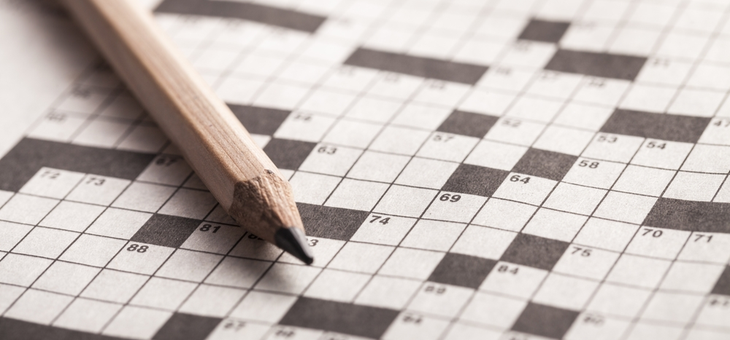If you tackled this morning’s crossword, or successfully completed a sudoku, congratulations. Your brain is in a happier place.
It may not be any smarter than it was last night when you went to sleep, but it’s better off than it would be if you had spent the time on social media.
There are varying opinions as to the mental benefits of puzzles such crosswords and sudokus.
Corporations that have developed alternative brain games decry the simplicity of crosswords and sudokus, pointing out that they don’t actually make you smarter, while their supposedly scientifically created games do.
Such criticisms are often commercially driven and ignore the fact that people who do crosswords may not want to get smarter. They do them because they’re fun.
In this case, however, fun may come with health advantages. The Alzheimer’s Association, America’s leading support and research body for Alzheimer’s, says that a daily crossword puzzle is a significant way to keep the brain active and sharp, and is especially beneficial for older people.
The Wall Street Journal recently published an article by Ann Lukits under the headline “Puzzles boost verbal skills, cut dementia risk”.
In it, she argues that solving crosswords on a regular basis can “improve memory and brain function in older adults” and “improve mental functions in patients with brain damage or early dementia”.
Ms Lukits’ view is supported by University of California studies that have found engaging in problem-solving activities, such as crosswords, protects the brain from ageing.
Researchers found that “lifestyle factors found in individuals with high cognitive engagement (such as doing crossword puzzles) may prevent or slow deposition of beta-amyloid, perhaps influencing the onset and progression of Alzheimer’s disease.”
For those of us who love crosswords or sudokus, possible health advantages are not why we do them. And this brings in a whole host of other advantages.
For a start, they give us something to do and help overcome boredom, in the same way a golfer benefits from a weekly round or a gardener benefits from planting and weeding.
Have you ever sat around a campfire or the kitchen table with a group of friends or family and attempted to work through a crossword? There is no doubt it encourages social bonding.
And, if you’re armed with a thesaurus, a crossword can increase your vocabulary.
Finally, have you considered how a crossword or sudoku can relieve stress?
Many people think that, once you turn 60 or 65, serious stress issues are behind you, but this is not always the reality.
There are the stresses related to financial survival, to declining health and doubts about self-worth.
For an hour or two every day, a crossword or a sudoku can envelop you in other thoughts, transport you to a different place – and sometimes that’s not a bad thing at all.
Do you set time aside for a daily crossword or sudoku? Are you a believer in its ability to help keep the brain ticking over?
Related articles:
Meditation can alter Alzheimer’s
Dementia linked to medication use
Hobbies that boost the brain

